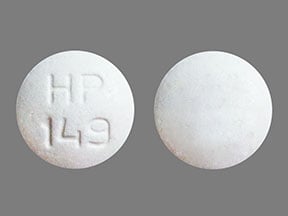
Precose Coupons & Savings Card – Discount Prices from $73.39
Brand for: Acarbose
My prescription
Edit
100MG, Acarbose (270 Tablets)
Select pharmacy

CVS
$73.39
COUPON PRICE
Walmart
$76.94
COUPON PRICE
Walgreens
$80.91
COUPON PRICE
Albertsons
$80.99
COUPON PRICEPrecose savings card
Show this card to your pharmacist
CVS
$73.39
BIN
ID
PCN
GRP
019876
LHED4610B4
CHIPPO
LHX
Powered by
Related alpha glucosidase inhibitors prescriptions
More prescriptions for diabetes type 2
Related alpha glucosidase inhibitors prescriptions
More prescriptions for diabetes type 2
Precose (Acarbose) dosage forms
Dosage Quantity Price from Per unit 25MG 30 Tablets $8.30 $0.28 25MG 60 Tablets $14.10 $0.23 25MG 90 Tablets $26.40 $0.29 25MG 100 Tablets $28.33 $0.28 25MG 120 Tablets $32.17 $0.27 25MG 180 Tablets $39.80 $0.22 25MG 500 Tablets $63.80 $0.13 25MG 1000 Tablets $101.30 $0.10 50MG 30 Tablets $9.19 $0.31 50MG 60 Tablets $15.88 $0.27
| Dosage | Quantity | Price from | Per unit |
|---|---|---|---|
| 25MG | 30 Tablets | $8.30 | $0.28 |
| 25MG | 60 Tablets | $14.10 | $0.23 |
| 25MG | 90 Tablets | $26.40 | $0.29 |
| 25MG | 100 Tablets | $28.33 | $0.28 |
| 25MG | 120 Tablets | $32.17 | $0.27 |
| 25MG | 180 Tablets | $39.80 | $0.22 |
| 25MG | 500 Tablets | $63.80 | $0.13 |
| 25MG | 1000 Tablets | $101.30 | $0.10 |
| 50MG | 30 Tablets | $9.19 | $0.31 |
| 50MG | 60 Tablets | $15.88 | $0.27 |
| 50MG | 90 Tablets | $22.57 | $0.25 |
| 50MG | 100 Tablets | $24.70 | $0.25 |
| 50MG | 120 Tablets | $27.84 | $0.23 |
| 50MG | 180 Tablets | $41.67 | $0.23 |
| 50MG | 270 Tablets | $50.87 | $0.19 |
| 50MG | 500 Tablets | $71.80 | $0.14 |
| 50MG | 1000 Tablets | $117.30 | $0.12 |
| 50MG | 9000 Tablets | $845.30 | $0.09 |
| 100MG | 270 Tablets | $73.39 | $0.27 |
| 100MG | 30 Tablets | $10.05 | $0.34 |
| 100MG | 60 Tablets | $17.60 | $0.29 |
| 100MG | 90 Tablets | $25.15 | $0.28 |
| 100MG | 100 Tablets | $27.66 | $0.28 |
| 100MG | 120 Tablets | $32.69 | $0.27 |
| 100MG | 180 Tablets | $47.79 | $0.27 |
| 100MG | 500 Tablets | $113.50 | $0.23 |
| 100MG | 1000 Tablets | $200.70 | $0.20 |
What is Precose used for?
Precose is used to help manage blood sugar levels in individuals with type 2 diabetes. It works by slowing down the breakdown of carbohydrates in the intestines, which helps to prevent spikes in blood sugar levels after meals.
Is Precose discontinued?
Precose (acarbose) has not been discontinued and is still available. However, availability can vary by location and pharmacy. It is always advisable to check with a local pharmacy or healthcare provider for the most current information regarding the availability of specific medications.
What is the generic for Precose?
The generic name for Precose is acarbose.
What is the major drawback to using acarbose in most patients?
The major drawback to using acarbose in most patients is the gastrointestinal side effects. These can include symptoms such as flatulence, diarrhea, and abdominal discomfort, which occur due to the fermentation of undigested carbohydrates in the colon. These side effects can be bothersome and may lead some patients to discontinue the medication.
What is the difference between metformin and acarbose?
Metformin and acarbose are both medications used to manage blood sugar levels in individuals with type 2 diabetes, but they work in different ways. Metformin primarily decreases glucose production in the liver and improves insulin sensitivity, helping the body use insulin more effectively. Acarbose, on the other hand, works by slowing down the digestion of carbohydrates in the intestines, which helps to prevent spikes in blood sugar levels after meals. Additionally, metformin is often used as a first-line treatment, while acarbose may be used as an adjunct therapy.
